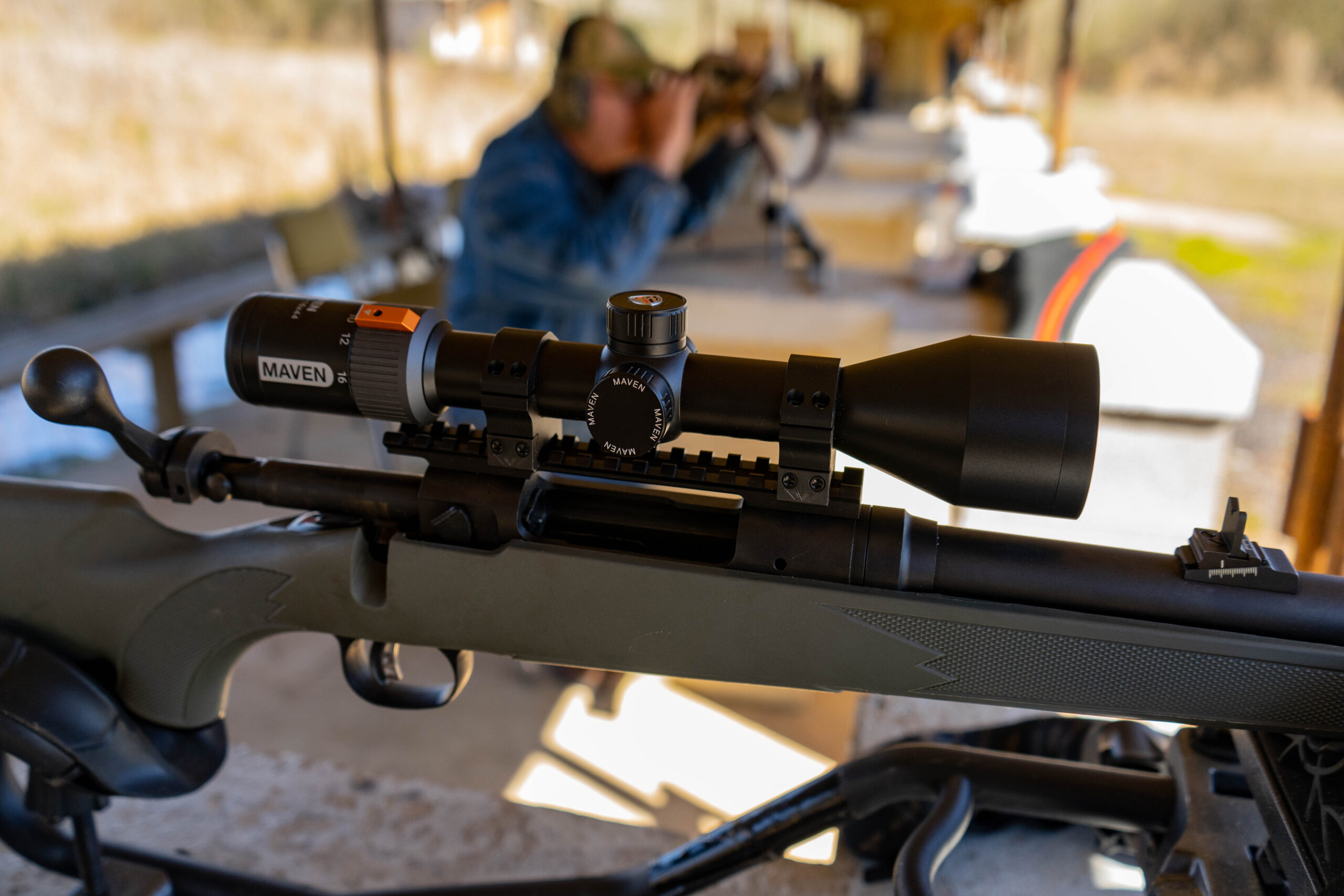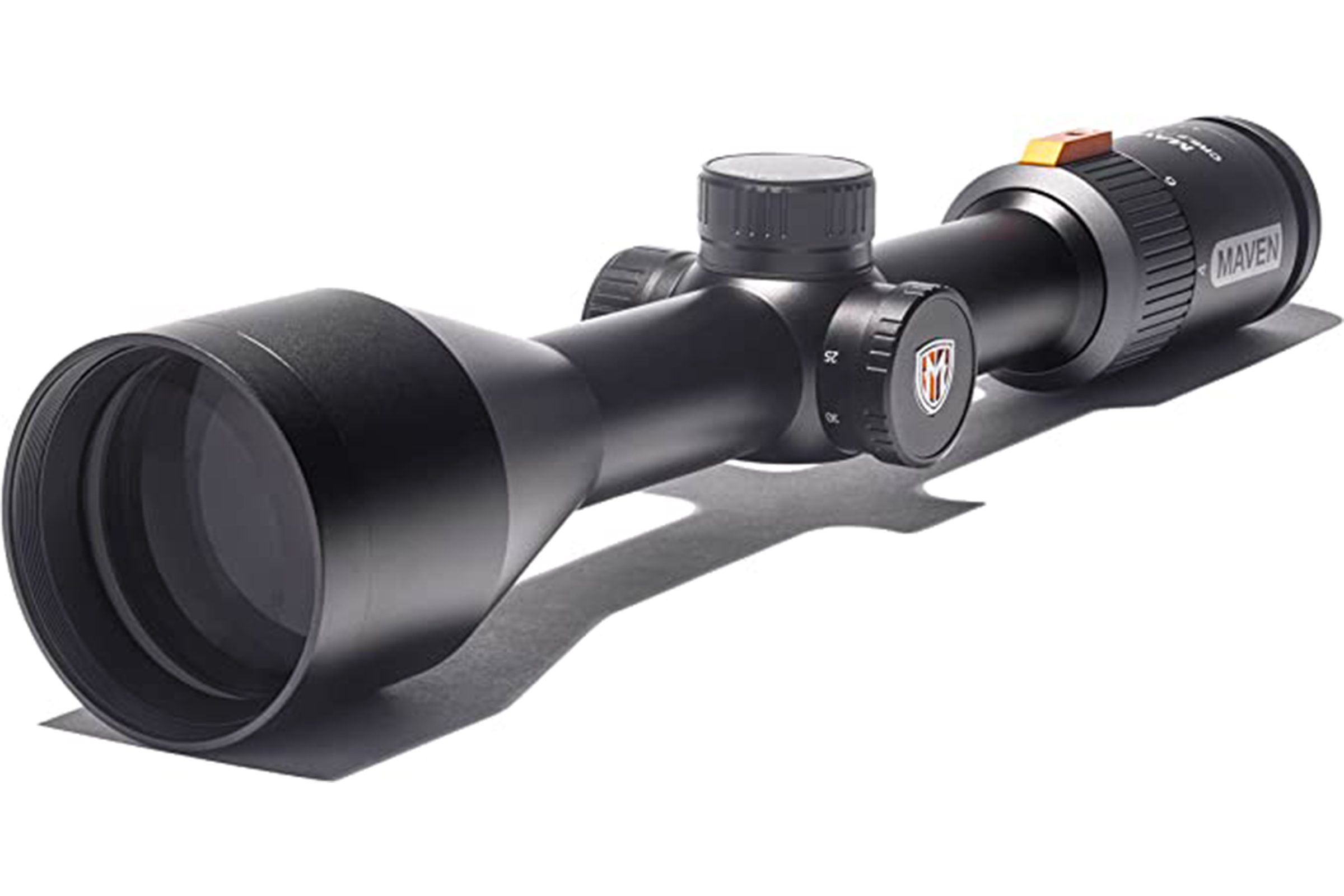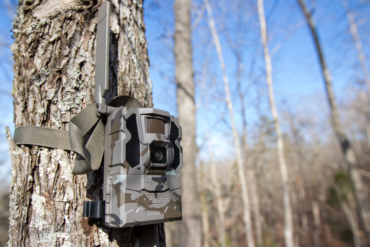For hunters who need more precise controls and magnification from their scope, the second focal plane Maven CRS.2 reviewed here hits that sweet spot. The SHR (Simplified Holdover Reticle) gives hunters the ability to make quick holdover adjustments but doesn’t crowd the scope’s view with the type of busy reticle you’d find in long-range hunting scopes. Whether you hunt the East or West, the CRS.2 should appeal to rifle hunters that need mid-range capabilities.
In short: The Maven CRS.2 pairs the simplicity of a hunting scope with bright glass and extra magnification you would find in the next price tier of riflescopes.
Maven CRS.2 Review
- Weight: 16.93 oz.
- Length: 11.6"
- Second focal plane:
- 0.25 MOA click value:
- Total elevation travel: 36 MOA
- Total windage travel: 36 MOA
- Wire CSHR reticle:
- Magnification: 4x-16x
- Objective lens: 44 mm
- 1" tube:
- Field of view at 100 yds.: 25.6' to 6.4'
- Parallax adjustment: 25 yds.-infinity
- Made in Japan:
- Lifetime warranty:
Pros
- Clear, bright glass
- Tight controls
- Simple reticle
- Price
Cons
- Some might prefer more objective lens options
Testing the Maven CRS.2 in the Field and at the Range
I mounted the Maven CRS.2 on a Savage 111 Hog Hunter .308 for the tail end of deer season and some target shooting. Once I zeroed the scope with some handloads, I then alternated between targets at 100 and 300 yards to test the controls.
Controls
Overall, the scope’s magnification, parallax, and eyecup adjustments are tight but turn smoothly and without any grit (though the parallax adjustment has a slightly mushy feel). Tight but smooth controls mean you don’t have to worry about bumping any adjustments in the field, but you can easily make one when you need it.
The turrets provide good feedback and response, and they are slightly more tactile than you might expect from a scope in this price range. You can also adjust them by hand, negating the need for a tool. While this scope is intended for quick holdovers instead of minute adjustments, the responsive controls are a pleasant surprise.
The focus ring on the eyepiece also turns smoothly and doesn’t stray once focused. This made it quick and easy to focus when I shot from the bench and transitioned from 100- to 300-yard targets. Within 400 yards, I didn’t have any major issues orienting my eye behind the eyecup even at higher magnifications.
Optical Quality
Overall, the glass is good, and it’s even better for its price range. For a $550 scope, the CRS.2 offers crisp clarity and color quality. The scope didn’t exhibit any major chromatic aberration (which all scopes display to some degree). I was also surprised at the amount of detail I could parse on trees and targets at 400 yards.
During the day, the CRS.2 exhibited a slight glare when facing into the sun. Even then, the optical quality wasn’t impaired enough to prevent shooting a target directly in line with the sun.
How the Maven CRS.2 Stacks Up
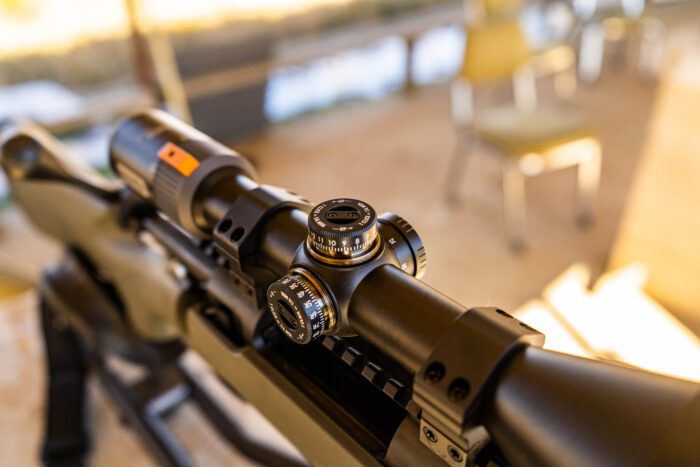
Maven claims its DTC (Direct to Consumer) model allows it to offer optics at a fraction of the price of competitors. To test this, I evaluated the CRS.2 next to a Zeiss Conquest and Meopta Meostar R1. The Conquest runs a few hundred more than the CRS.2, but the Meostar R1 costs just over double. This comparison isn’t intended to be a head-to-head. Instead, I wanted to see how the CRS.2 fared against similarly priced and more expensive European glass.
To review the Maven CRS.2 and compare it to the other two scopes, I observed targets at 100, 300, and 400 yards during bright and low light conditions.
During low light conditions, the Conquest and CRS.2 were strikingly similar. At 100 yards during last legal shooting light, the Conquest displayed just a tad more total area that remained in focus. Other than that, the clarity and detail at the center of the sight picture were identical.
Before low light conditions, the CRS.2 and Meostar appeared similar in their clarity, while the Meostar picked up a bit more detail. During low light conditions, the Meostar left the CRS.2 behind. Again, I wasn’t conducting a direct comparison between these two.
The Meostar has a 30mm tube and 56mm objective lens compared to the CRS.2’s 1-inch tube and 44mm objective. The difference in these measurements makes a direct comparison unjust and unrealistic. Rather, my intent was to see how long the CRS.2 could hang with the Meostar. During the last 15 minutes of shooting light, this difference became apparent.
What the Maven CRS.2 Does Best
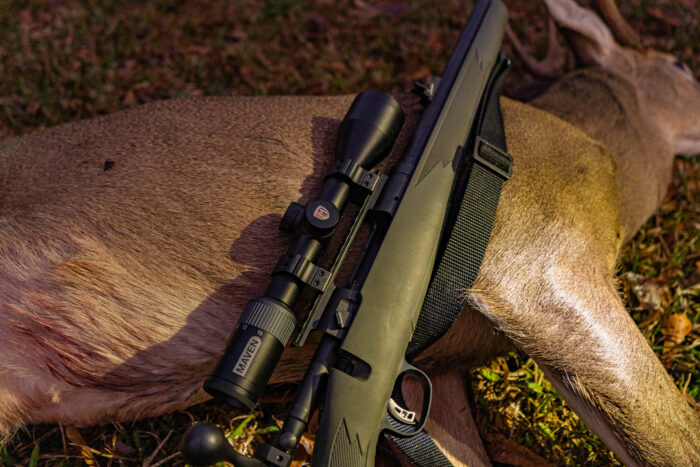
At 16.93 ounces, the CRS.2 is a surprisingly light scope and makes a great companion for compact or lightweight hunting rifles. The brightness, glass clarity, and parallax adjustment outperform the $550 price tag, making this scope a bargain.
The 44mm objective feels right at home for this hunting scope. It doesn’t have the large footprint of a 50mm but offers a greater field of view and light-gathering capabilities than a typical 40mm. Its size and magnification settings make it an excellent option for whitetail hunters looking to make a sizeable upgrade from entry-level optics but who aren’t ready to drop $1,000 on a hunting scope.
Maven’s trademark orange accents add a much-welcomed aesthetic appeal that many scope manufacturers lack. Though subjective, this scope would look cool on any rifle.
Where the Maven CRS.2 Fails
At its lowest magnification setting, the CRS.2 loses detail around the peripherals, but you’d be hard-pressed to find a scope that doesn’t. Some hunters might prefer more options when it comes to the reticle, to which I would respond, find another scope. The simplicity of the reticle plays to this scope’s strengths.
Maven CRS.2: Final Thoughts
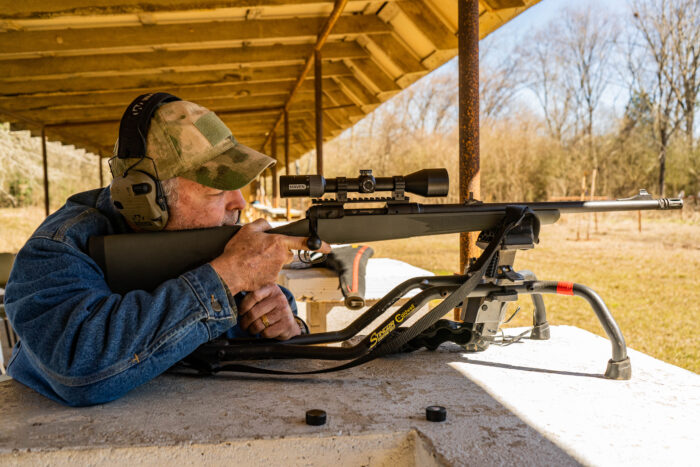
Hunters looking to upgrade their riflescope on a reasonable budget should consider the CRS.2. To maximize this scope’s potential, spend time at the range learning how your hunting loads perform with the three holdover marks. That way, you can stretch your range and your budget.
